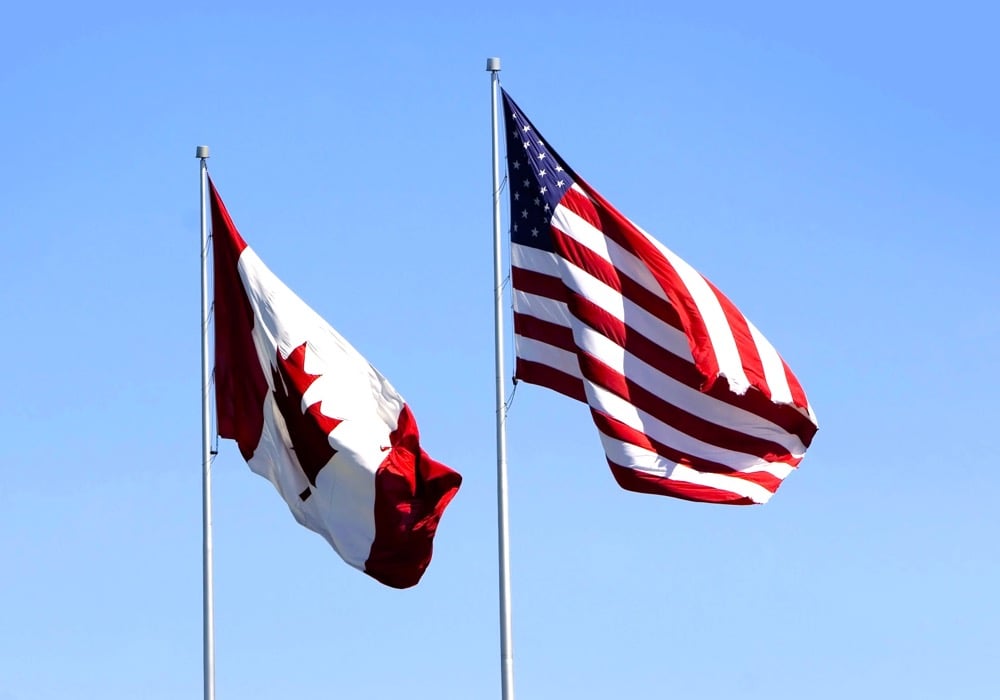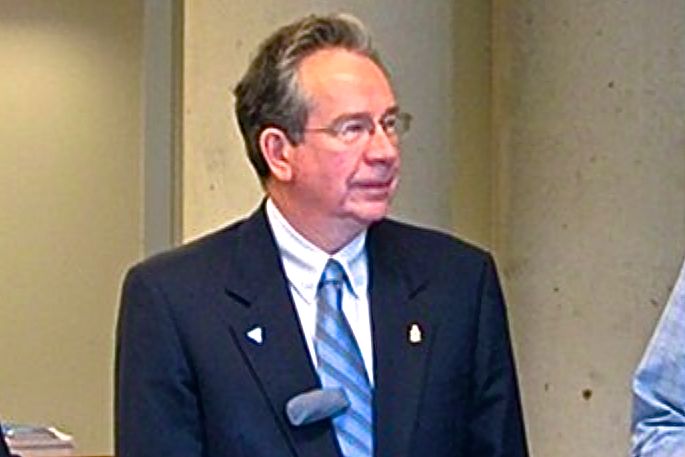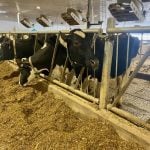Ontario’s Liberals will have their agriculture standard-bearer back for the 2018 election.
Jeff Leal, Ontario’s minister of agriculture, food and rural affairs, is staying in politics, running for his fifth term as a member of the provincial legislature in the Peterborough riding.
Leal, who as a resident of Peterborough is about as rural as any of the Liberal members, is in his 33rd year of political life, including his time as a city councillor.
The Liberals were mostly shut out of rural Ontario in the last election and there’s been little in the change of tone in the countryside to lead one to think Liberal fortunes will change, despite Leal’s effusive cheerleading of the sector and his willingness to listen.
Read Also

Canadian trade data delayed by U.S. government shutdown
Canadian international trade data for September will be delayed indefinitely due to the ongoing partial shutdown of the United States government, Statistics Canada said Friday, Oct. 24.
Leal said in a year-end interview with Glacier FarmMedia that his four years as agriculture minister have been the most fulfilling of his political career.
Leal pointed to the continued strength of agriculture and food as he looked back over 2017. He’s never shy about telling people that agriculture and agri-food is the largest economic sector in the province and employs 800,000 people.
Leal put forward his usually-effusive message about the future potential he sees in Ontario and Canada’s agriculture sectors.
“It never ceases to amaze me. I go to see new dairy barns. They’ve made an investment of $2 million to bring robots into the dairy sector. I see the advances they’re making in the chicken side to meet consumer demand.”
Leal has pushed exports as a path for the sector to continue to grow, and points to exports of Ontario Corn Fed Beef to Japan and the potential for pork in Vietnam and China as opportunities.
“There’s lots of opportunity out there. Ontario agriculture will be there to seize the moment.”
He also pointed to investments the province has made in food processing, including Sofina Foods and Ferrero Rocher.
Despite Leal’s work within the sector, most the policies that have provoked the ire of rural Ontarians are outside the scope of his ministry.
For example, the impending increase in minimum wage, especially tough on horticulture producers, is put in place by the Ministry of Labour; electricity rates are set by Hydro One drive by policy from the Ministry of Energy; and changes to pesticide regulations have come from the Ministry of the Environment.
Major policies made to appeal to the larger population have had negative effects in rural Ontario, something farm organizations have called “collateral damage.” The challenge for the Liberals is that the repercussions are real and have created concern in rural Ontario.
The reopening of negotiations over the North American Free Trade Agreement with the U.S. and Mexico has been a major focus for Leal, as he worked to sell the deal with nearby states that have significant trade with Ontario.
Leal got one of his largest national wins during the federal-provincial meetings to sort out the next Agricultural Policy Framework, now called the Canadian Agricultural Partnership. After some intense lobbying, Leal found enough support among agriculture ministers to create a national review of agriculture business risk management (BRM) programs.
Ontario has funded a BRM program for Ontario agriculture alone, without what would have traditionally been federal along with provincial funding.
The federal government announced its national advisory group on the BRM review last week.
Lyle Stewart, Saskatchewan’s agriculture minister, and Laurent Lessard, Quebec’s agriculture, food and fisheries minister were instrumental in helping bring about the review, he said.
The Ontario government is also conducting its own review of agriculture business risk management programs “to meet the needs of farmers in the 21st century.”
Agriculture and agri-food employment has grown by about 57,000 jobs since Premier Kathleen Wynne in 2013 challenged the sector to add 120,000 jobs by 2020, Leal said. Agriculture and agri-food have added about $3 billion more gross domestic product (GDP) to the Ontario economy in that time.
Adding another 60,000 jobs is the goal over the next three years, and Leal said he’s asked his deputy minister to look into what needs to be done to meet that goal. The human resource side — having enough workers available and educated — will be important, he added.
Leal says he’s happy with some of the rural candidates the party has attracted for the next election. However, the Liberals will have been in power for almost 15 years by the next election, and in that time there have been numerous policies that haven’t endeared them to rural voters, including proliferation of wind turbines, increases in electricity rates and tighter restrictions on popular pesticides.
The Liberals have started to work on policy ideas for its platform and Leal said they are looking at ways to improve banking availability in rural communities.
— John Greig is a field editor for Glacier FarmMedia based at Ailsa Craig, Ont. Follow him at @jgreig on Twitter.

















